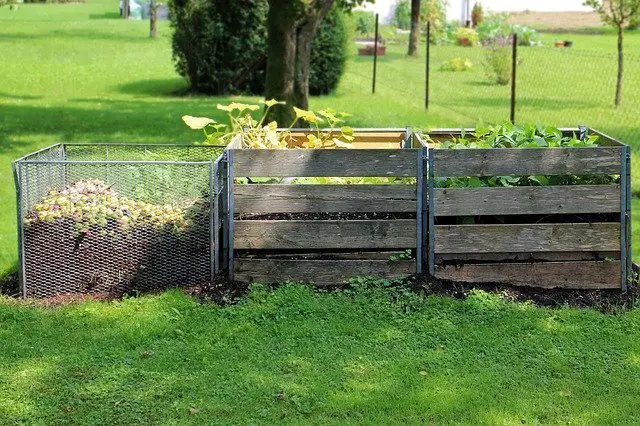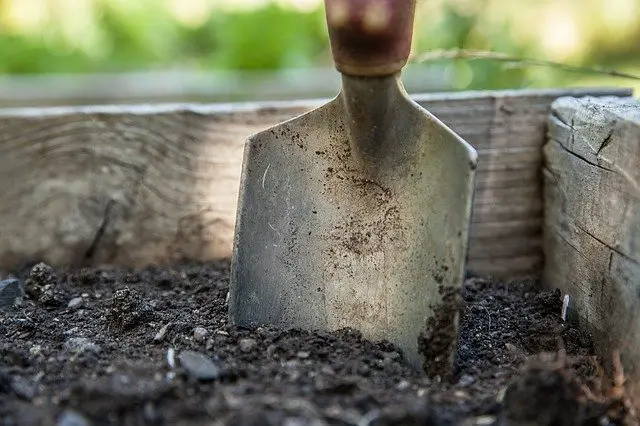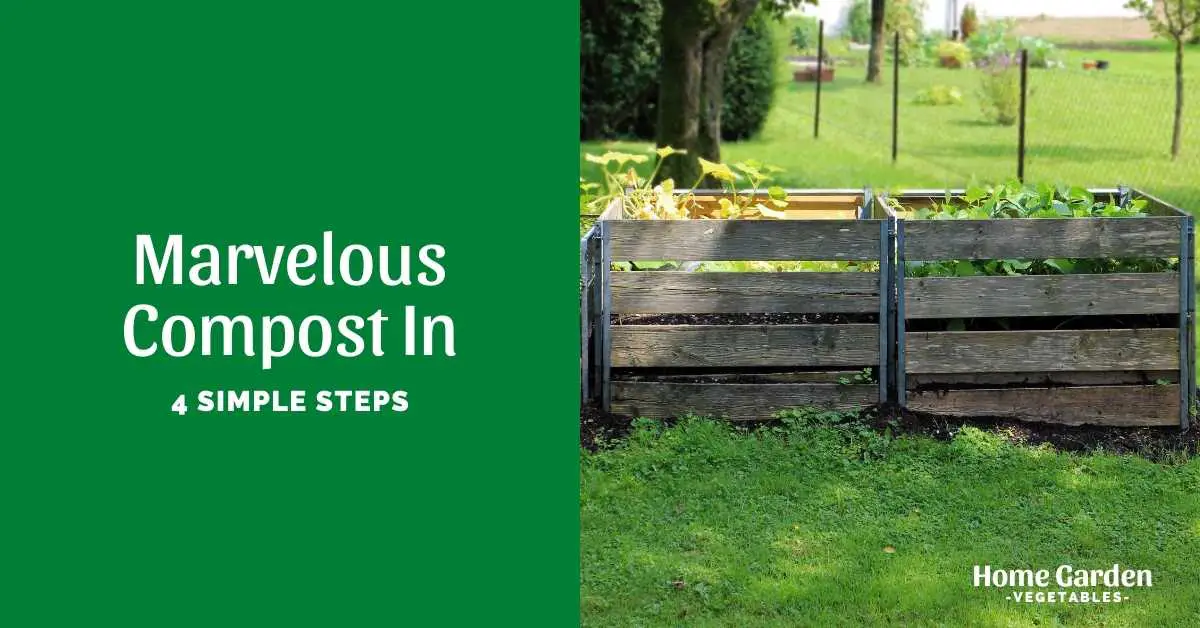When you are looking to start growing vegetables, you should consider using homemade compost. For the fact that you are looking to get a good yield from your vegetable garden, it is ideal that you provide the proper nutrients to your vegetables, and the cheapest way to do so is by preparing organic fertilizer.
Compost not only provides these nutrients but retains moisture, thus enriching your soil and suppresses plant pests and diseases. Preparation is quite easy, as all the resources required are readily available at home.
Reader Poll: What online courses would interest you?
What equipment do you need?
Before you embark on the waste decomposition process, you need to find sufficient space in your garden where you will set the heap or place the bin. Also, you will need the following equipment for the process to be productive.
- Receptacle – The receptacle is ideal for collecting kitchen waste and reduces anaerobic decay of the trash. An old open pot or huge bowl should work fine to hold your waste whilst it compost’s
- Pruning shears – You will need this to chop small branches and twigs into smaller pieces, which break down quickly, making the composting process faster.
- Scoop shovel – This tool comes in handy when you are looking to access material at the bottom of the compost heap.
- Pitchfork – You will use the pitchfork to hand-turn the pile.
- Spade – A spade has a sharp or pointed edge that you can use to break down thick or large material such as vines and stalks. You can also use it to turn the heap.
- Watering can – The pile will decompose faster when moist. You need the watering can to water the compost heap during hot weather or drought. You can also use a hose for this.
- Aerator – As the name suggests, the aerator is meant to allow air to enter the pile. Aeration stimulates decomposition, which reduces the need to turn the pile regularly. Push it in, then pull to remove soil from the pile and leave space for air to enter.
- Thermometer – It is useful in monitoring the temperature of the pile.
Heap or bin?
Both bin and heap work just fine, but different people have different preferences. If you have space or looking to produce more compost for your vegetable garden, it is best to go with the heap. If you worry too much about space or maintaining the aesthetics of your garden, then it is best to use a compost bin instead. However, it is better to use a strong container, especially if you are prone to getting rats in your garden. It also keeps things tidy too.
There is now a growing trend for tumbling compost bins. These are very useful because as you will find out later in this article they make turning the pile easier.
Subscribe to our newsletter!
Materials to use for preparation
Most of your kitchen and garden waste is usable i.e., organic materials such as cut flowers, tea bags, eggshells, peelings, coffee grounds, dry leaves, and garden pruning. You can also use some other stuff from your house such as newspaper, sawdust, straw, wood chip, and cardboard.
There are tons of ingredients around your home that you can use for compost!
How to compost
With all the necessary materials and equipment intact, it is time to get to work.
1 Prepare The Site Or Container
Depending on whether you choose to use a compost bin or heap, you first have to prepare the container or the site. Choose a perfect spot within your garden where there is shade, as exposing the compost heap to extreme temperature might mess with the process.
If you choose to go for a compost bin, you can use any large container from your garage or buy a large bin from the store. If you go with the heap, be sure to stand the heap directly on the soil, as worms and microorganisms speed up the decomposing process. In case your use or a compost bin or your garden is concrete or hard, add soil to the pile to introduce bacteria and other microorganisms.
2 Get The Right Balance Of Composting Material
Heaping up all the material you have at once might not produce the best organic fertilizer for your garden. Balancing the kitchen waste, pruning from your garden, and other material from your house does the trick. Go for at least 50 percent of the green material and kitchen waste and the remaining 50 percent to consist of wood material and paper. Do not forget to add soil if your compost heap is on a hard surface or if you choose to use a bin. You can compost kitchen waste including peelings and carrot tops.
3 Add Water To The Pile
Water or moisture in a pile speeds up the decomposition process. For the fact you have set up your heap or place the bin under a shade, you will have to water the pile yourself, and this is where the watering can come in handy.
Sprinkle water on the heap often to keep it consistently damp. Take caution, however, not to add too much water, or else your pile will rot instead of becoming peat or fertilizer to your vegetable garden. Too much water makes bacteria, fungi, and other microorganisms to become waterlogged, thus cannot act on the heap to decompose. As you add water to it, use the thermometer to monitor the temperature of the pile to be sure that decomposition is taking place. In case you fail to get your hands on a thermometer, dip your hand in the middle of the pile. It should feel warm.
4 Stir The Pile
It is obvious for the material at the bottom of the pile to decompose faster than at the top, and since you want to maintain uniformity, you should stir up the pile after a few days. The best hand tool for this is a pitchfork. The spade can also be used to turn the pile, especially if you need to access the bottom of the heap.
The ideal time to stir it up is when the centre feels warm enough after you deep your hand or when the thermometer reads between around 140 degrees Fahrenheit. Mixing up the pile of organic waste will cook it faster and prevent it from developing an odour. The stirring is also meant to ensure equal distribution of the brown and the green material, as is essential when the mix is balanced.
Even though the turning of the pile leaves space for air to enter, it is wise if you use the aerator as well to open up the waste and pull out the soil that may block air entry.
How Long Does The Compost Process Take?

Successful preparation of the home-made manure takes at least 2 to 4 months if stirred well and kept in the right condition, but can take even longer if mistakes are made during preparation. Do not make the mistake of trying to hurry the process, in the quest to get good manure rich in nutrients for your soil as you grow vegetables.
The other aspect that might affect the maturity period for organic fertilizer is the weather. Too much heat or too much water will affect the end product so be sure to adhere to the guidelines provided on composting and how to maintain it.
How To Tell When It Is Ready?
Your observation skills need to be on point to tell the perfect time to feed your garden. When it is ready, the pile turns crumbly and brown and develops a damp, sweet smell. High chances are, not all the material in a heap will look or smell like this, that is why you only need to collect and use what is ready and add a mixture of the same material used to make the first heap and commence the process all over again.

How To Use Compost
When growing vegetables, mulching is the ideal way to use compost and how to apply. Apply a 3 to 6 inch layer of compost in your garden and use a rake to spread it evenly. Homemade fertilizer is rich in nutrients needed by the vegetables to produce a bountiful harvest. It also naturally absorbs and traps water in the soil and prevents evaporation and prevents the growth of weeds at the same time. If you have a clay soil type then compost can be dug in to improve it.
Can I Prepare A Pile In My Kitchen?
Absolutely. Not having space to set up the heap or place the bin because you live in a house without a backyard or an apartment is no reason for you not to prepare the pile. It is an incredible way of ensuring you do not have to trash or throw away your kitchen waste and food scraps. However, you will have to buy or prepare a nice bin to use and follow all the guidelines without fail to keep things tidy, preventing it from developing an odour.
What Are The Different Types Of Preparation?
There are three types of preparation for homemade fertilizer.
- Anaerobic – This entails just collecting the materials needed, such as cut plants and kitchen waste, stack them in a heap or bin, and wait for it to decompose.
- Aerobic – This is for gardeners who are more serious about the end product they get and the time it takes. It entails preparing the required materials in the right ratio and adding water, allowing air, and stirring the pile regularly.
- Using worms – This is the use of worms such as red worms purchased online or from a store to speed up the decomposition process.
Preparing fertilizer from kitchen waste and other material found at home is quite easy. It also offers a cheap solution to providing your garden with the right nutrients to plant vegetables and any other foods.
FAQ
Can You Compost Cooked Foods?
Yes you can but it adds extra water to the compost heap and makes a watery compost. The compost takes longer to produce and its nutrition content is lower.
Can You Compost Straw?
Yes it’s considered brown material so use it in balance with green material.
Can You Compost Banana Skins?
Yes you can compost banana skins, however, they take a little longer to break down.
Can You Compost Rats / Dead Animals
You can compost rats and dead animals however really think if a rotting corpse is something you want to have to sift through when turning the pile. Even a small animal corpse will take longer to compost and will attract flies so expect maggots.
Can You Compost Lawn Clippings?
Yes you can compost lawn clippings. Restrict the amount of green / brown waste so only a third maximum at any one time. It’s very easy to fill the bin with lawn clippings but it’s best to balance it with brown waste.
Can You Compost Egg Shells?
Yes you can compost egg shells. Whenever I clear out my bin I am always finding egg shells. They take longer to break down so best to crush them up when putting them in.
Can You Compost Cardboard?
Yes you can and should compost cardboard. Stick with cardboard that has not been printed on and remove tape and labels etc. Rip or shred the cardboard into smaller pieces to help it break down further.
Can You Compost Bread?
Yes you can compost bread, Be mindful food waste of this type can attract vermin.
Can You Compost Nettles
Yes composting nettles is a great idea and it accelerates the process of adding nitrogen to the compost heap.
Do I need to Add Worms to My Compost
You can but there is no need. As long as the bottom of the compost heap is open and exposed to the elements worms will find their way into your heap. Do not worry they will multiply like mad. This is a good thing as they help to break down the waste.
What Do I Do If I Find A Hedgehog In My Compost Bin
Carefully encourage the hedgehog out of the compost bin. Use gloves if necessary or call an animal control specialist. Make sure your compost bin is secure. Put out for hedgehogs, there are lots of delicious foods that hedgehogs like to eat. This will help prevent them from going into your compost bin by providing an alternative food source.

